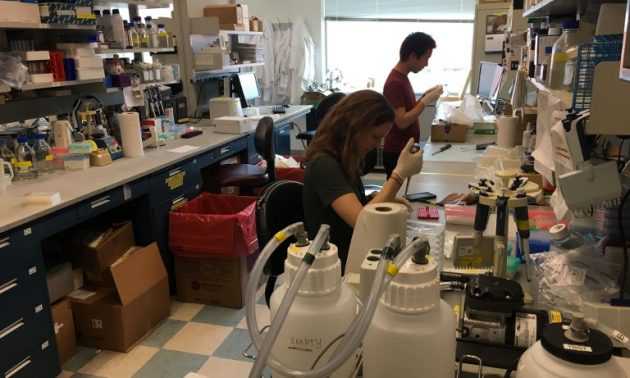No, Johns Hopkins isn’t barring foreign scientists due to spies
07 November, 2018

Though politicians in Washington have grown increasingly suspicious of Chinese involvement in US academic research, one can be forgiven for being shocked to hear on Monday that one of America’s most prestigious medical research institutions decided voluntarily to bar all foreign scientists.
“Johns Hopkins bars foreign scientists over intellectual property risk,” read the headline from the South China Morning Post, which cited an e-mail sent to faculty at the university’s medical school.
After a spokesman for Johns Hopkins told the Post that the e-mail was inaccurate, the article went on to say that the school did not respond to follow-up questions in response to comments from scientists.
What did happen was that the institution briefly halted the registration process last month while it updated application forms to address concerns raised by the National Institutes of Health, Asia Times learned on Tuesday.
“Recently, the NIH expressed concern about the inclusion of support for foreign activities in NIH awards, without prior approval from the NIH for that use. This resulted in a brief freeze in the Registrar’s office on processing approvals for foreign individuals seeking appointments, in order to clarify necessary procedures,” read an e-mail sent to faculty in late October, which has been viewed by Asia Times.
“This has now been accomplished. The new process for visiting scientists and research students with foreign support will require additional information, beyond that normally required.”
The concerns expressed by the NIH come amid increased scrutiny from US lawmakers regarding Chinese researchers in the United States.
In August NIH director Francis Collins testified before a Senate committee about the need to improve the procedures for including foreign nationals in programs funded by the agency, a part of the US Department of Health and Human Services.
He proposed establishing a new advisory committee to identify methods to “improve accurate reporting of all sources of research support, financial interests, and affiliations,” in the context of evidence that researchers from China were hiding affiliation with Chinese government programs.
But he added that the actions should be carried out in a way that “emphasizes the compelling value of ongoing honorable participation by foreign nationals in the American scientific enterprise.”
After suspicions among US lawmakers that Chinese government initiatives such as the Thousand Talents Plan, which aims to attract foreign-trained Chinese scientists back home, researchers affiliated with such programs allegedly began hiding their involvement when applying to US institutions.
The changes made to the application process at Johns Hopkins are an apparent response to such concerns and will require international applicants to provide additional information.
Scrutiny from lawmakers in Washington and the Federal Bureau of Investigation of scientists involved in the Thousand Talents Plan has led to confusion as to what the motive of the US government’s efforts to pressure higher-education institutions really is.
According to an article published by Nature Research, increased requirements to disclose affiliation with Chinese recruitment programs, and the barring of those who are involved, may serve to interfere with China’s goals of advancing in high-tech fields.
“It is just a recruitment plan,” Lin Xin, an immunologist and biologist at China’s Tsinghua University, was quoted as saying. “We want the research community to be able to freely talk about their work.”
Toby Smith, a vice-president at the Association of American Universities, which represents 60 institutions, said schools were working to understand government concerns, “but at this point, it is still a bit unclear what the threat from the programs actually is.”
With regard to China, while research institutions that depend on their skills will not be barring them on their own volition any time soon, new restrictions may dissuade some from involvement in the Chinese recruitment programs.
“The best researchers will stay in the US,” Futao Huang, a higher-education analyst at Hiroshima University in Japan, was quoted as saying.
TAG(s):
